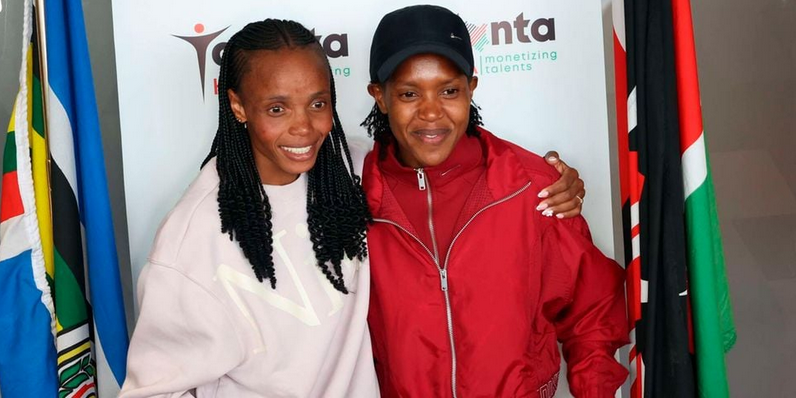The countdown is real now, and the road narrows toward the start line. With just days to go, the world of track and field tilts its compass toward Tokyo for the 2025 World Athletics Championships, a global meeting where ambition, preparation, and policy collide. From government incentives that change the calculus of risk and reward, to late fitness updates and emotional career crossroads, this final stretch is revealing the human stakes behind every result sheet.
Kenya raises the stakes with cash rewards
In Nairobi, President William Ruto placed clear value on podium dreams, ordering a sharp increase in daily allowances and medal bonuses for Team Kenya. Athletes will receive 200 dollars per day, officials 300 dollars, a change designed to match the grind of early mornings, late evenings, and relentless discipline. The medal ladder now promises Ksh3 million for gold, Ksh2 million for silver, and Ksh1 million for bronze, a significant climb from previous figures.
Team Kenya will send 58 athletes to Tokyo, aiming to better the haul of 10 medals from Budapest 2023. There is confidence around the women’s middle and long distances, where Faith Kipyegon and Beatrice Chebet carry the flag in the 1500m, 5000m, and 10,000m picture. Emmanuel Wanyonyi draws attention in the 800m and Faith Cherotich anchors the 3000m steeplechase hopes, the blend of youth and experience that often defines championship weeks.
Faith Kipyegon and Beatrice Chebet fine-tune in Poland
Before Tokyo, two of the sport’s modern standard bearers are sharpening their edges in Silesia. Three-time Olympic 1500m champion Kipyegon races the 3000m, stepping into a pace zone that fortifies both her 1500m and 5000m ambitions. She carries an 8:23.55 personal best into a field rich with Ethiopian and international quality, a final tune that doubles as a stress test.
| CASINO | BONUS | INFO | RATING | |
|---|---|---|---|---|
|
bonus
Deposit KES 147 for up to KES 14,745 bonus + spins!
See 10 Bonuses
|
info
BK 0000683 Industry-leading software providers, over 30 casino games, BCLB license |
|||
|
bonus
Register for up to 31,400 KSH bonus on deposits!
See 12 Bonuses
|
info
No. ALSI-112310012-F15 Unique selection of slots & games |
|||
|
bonus
New players get 50 free spins and a Ksh 2500 freebet!
See 7 Bonuses
|
info
BK 0000665 PG 0000405 Good combination of online casino and betting platform |
Chebet, the double Olympic gold medalist over 5000m and 10,000m, will run the 1500m in Poland to stimulate speed for the longer assignments in Tokyo. Her 2025 has already been history-making, with a 13:58.06 world record over 5000m at the Prefontaine Classic in early July, the first sub 14 minutes by a woman. In Tokyo, Chebet will take on both the 5000m and 10,000m, a program that demands precision, patience, and a fearless kick.
Celestine Biwott finds a second chance in the steeplechase
Sometimes the door opens not with a bang, but with a well timed opportunity. Celestine Jepkosgei Biwott, Kenya’s national 3000m steeplechase champion and Kenya Defence Forces titleholder, nearly walked away from the sport in 2022. After finishing secondary school, without a clear training base, she felt adrift. A persistent coaching hand guided her back, and this season she has earned the vest she once feared might never arrive.
Biwott placed fourth at the Kenyan trials, then watched as Olympic and world bronze medalist Faith Cherotich won the Diamond League title in Zurich and secured a wild card. That outcome expanded Kenya’s Tokyo entries to four, pulling Biwott from reserve to frontline. She will line up with Cherotich, Doris Lemngole, and Pamela Kosgei, a quartet that dreams of a podium sweep against a formidable champion in Winfred Yavi. As Biwott puts it, sport is competition and entertainment, and she believes even a mentor would be proud to be beaten by a protégé on the biggest stage.
Victor Kiplagat leads Uganda’s title defense in the marathon
Uganda’s marathon crown rests on the shoulders of Victor Kiplagat, a champion defined by resilience and range. He won the world title in 2023, two years after claiming Commonwealth Games gold in Birmingham despite a late course mishap, and his trajectory stretches back to a teenage triumph at the 2017 World Mountain Running Championships. The target now is rare air, back to back world titles, a club that includes Abel Anton, Jaouad Gharib, and Abel Kirui.
Kiplagat’s personal best of 2:05:09 from 2022 puts him in striking distance of the championship record of 2:05:36, set by Tamirat Tola in 2022. The task is steep, and the rivalry from Kenya and Ethiopia is as fierce as it gets, but he has often thrived in exactly those conditions. The marathon in Tokyo, with its tactical tests and late moves, should suit a runner who has learned to navigate chaos and make it look like calm.
South Africa breathes easier as Bayanda Walaza is cleared
For South Africa, the most important news this week was a medical green light. Reigning double U20 world champion Bayanda Walaza, who grabbed his hamstring in the Zurich Diamond League final and limped home, has been declared fully fit after assessments. It means the raw sprinting talent can make his individual World Championships debut and, just as crucially, return to the 4x100m relay pool.
The South African quartet of Walaza, Akani Simbine, Bradley Nkoana, and Sinesipho Dambile clocked 37.61 in May, the fastest 4x100m time in the world this year. Walaza has spoken openly about aiming for a final and even a medal if the moment opens, a mindset that matches the relay’s ambition. After leaving recent World Championships empty-handed, the nation’s 49-strong squad has a clear focal point, speed on the curve and clean exchanges down the home straight.
Favour Ofili confirms allegiance switch and misses Tokyo
The sprint lanes will feel a little emptier without Favour Ofili. Nigeria’s national 200m record holder at 21.96 and a Paris Olympic finalist has confirmed that she has started the process of switching allegiance to Turkey, a journey expected to conclude in 2027. Her message was both thankful and searing, pride in a medal rich Nigerian career, and frustration with federation and Olympic committee negligence that she says cost her events at both the Tokyo and Paris Olympics.
Ofili stressed that the decision came from the heart, not financial motives, and that she will sit out Tokyo 2025. The episode underscores how administrative lapses can shape elite careers in ways that training and talent alone cannot. For a sprinter who has raced across the world with verve, this pause is both a loss for the championship and a reminder that athlete welfare hinges on structures as much as speed.
What to watch when Tokyo opens on Saturday 13 September
It is one thing to read entry lists, and another to feel the electricity once the stadium fills. The championships run from 13 to 21 September and the outlines are already vivid. Here are three storylines that promise intrigue at the gun and on the bell.
- This is how it’s done, Team Kenya’s medal chase under a new rewards scheme that places clear value on podium finishes
- This is how it’s done squared, Victor Kiplagat’s marathon defense against East Africa’s finest with an eye on the championship record
- This is how it’s done cubed, relay rhythm in the men’s 4x100m where South Africa brings the year’s fastest time.
Preparation meets opportunity in Tokyo
The final week before a championship can tilt focus from noise to needs. For Kenya, the financial uplift is more than optics, it is a statement that performances are valued in hard currency. For Uganda, the marathon is again the stage to assert range and endurance, a realm where the nation’s stars have learned to convert quiet confidence into medals.
For South Africa, Walaza’s fitness transforms a worry into an opening, a chance to take the world leading relay from a line on a results sheet to a medal moment. And for the sprint fraternity, Favour Ofili’s absence is a sobering note, a reminder that administrative certainty is as vital to performance as any warm up stride.
The human edge behind the numbers
What binds these threads is the human edge. Kiplagat’s long arc from mountain running to the flat roads of a world title, Chebet’s fearless leap into uncharted 1500m duty to sharpen long distance instincts, Kipyegon’s embrace of the 3000m as a strategic sparring partner. Every choice in these days before Tokyo is shaped by history and by the hunger to make more of it.
Biwott’s journey carries a different light, the relief and gratitude of a place on the plane, and the audacity to dream of beating a friend and mentor like Winfred Yavi. It is the alchemy of elite sport, respect and rivalry in a single stride. When the water jump splashes and the bell rings, her story will be one to watch.
Why these updates matter for Tokyo 2025
Championships are decided by more than season’s bests. They hinge on late decisions and cleared scans, on travel plans that finally work, and on institutions that match the athletes’ investment. Kenya’s revised rewards scheme can influence selections, tactics, even risk taking in heats and finals. Uganda’s marathon hopes rest on a champion comfortable with pressure, not just pace.
South Africa’s relay drills will aim for perfect steps, the marginal gains that separate silver from fourth. And Nigeria’s sprint narrative shifts without Ofili, opening room for new names while her own path plots a long view toward 2027. The shape of the championship is being written now, in the careful combinations of courage, care, and commitment.
The last word before the gun
Tokyo is almost here, and the themes are set. Policy meets performance in Nairobi, endurance meets legacy in Kampala’s colors, sprint faith is restored in Pretoria’s relay group, and a gifted Nigerian sprinter takes a breath before a new chapter. The sport is as much about these choices as it is about finish times and photo finishes.
When the first starter raises the pistol on Saturday, a thousand private stories will burst into the public air. The best part of championships is that the track and the road tell the truth, no edits, no excuses, only the athlete, the clock, and the roar. On that stage, preparation becomes poetry, and every stride in Tokyo writes a line we will remember.









